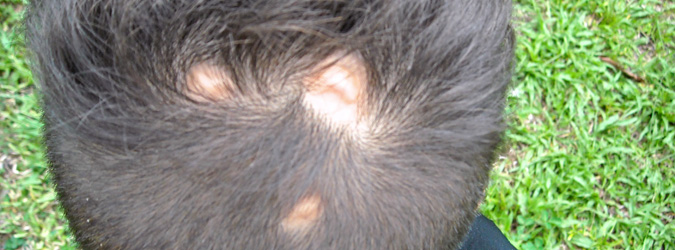
The goal of this research study is to identify genes and regulatory elements on chromosomes that cause ACC. We also study tissue samples from patients to learn about the processes that lead to this disorder.
About the ACC Study
What is aplasia cutis congenita?
Aplasia cutis congenita (ACC) or congenital scalp defect is a very rare disorder that affects bone and skin. The definition for ACC is the localized absence of (normal) skin at the time of birth (congenital). The skin appears thinner and the underlying structures are visible. We study mostly the isolated form of ACC with the lesion often being at the vertex of the skull (at or close to the top of the skull). The bone underlying the lesion is sometimes thinner as well.
ACC can be associated with other disorders, mostly with Adams Oliver Syndrome.
What do we know about the genetics of ACC?
ACC can be inherited but often children are born with ACC lesions that developed spontaneously. Genes that contribute to ACC are not yet known.
Can ACC be inherited?
ACC can be inherited but many cases are known to occur without signs of being familiar.
Do we treat ACC?
No, we do not treat ACC.
Why should I participate in a genetic study?
Our goal is to find genes that cause ACC or contribute to the disorder. Very little is known about ACC and we hope that our research will significantly add to the knowledge base on ACC.
Your participation will help to reach our goal.
Will I directly benefit from this study?
You will not directly benefit from the results of this study.